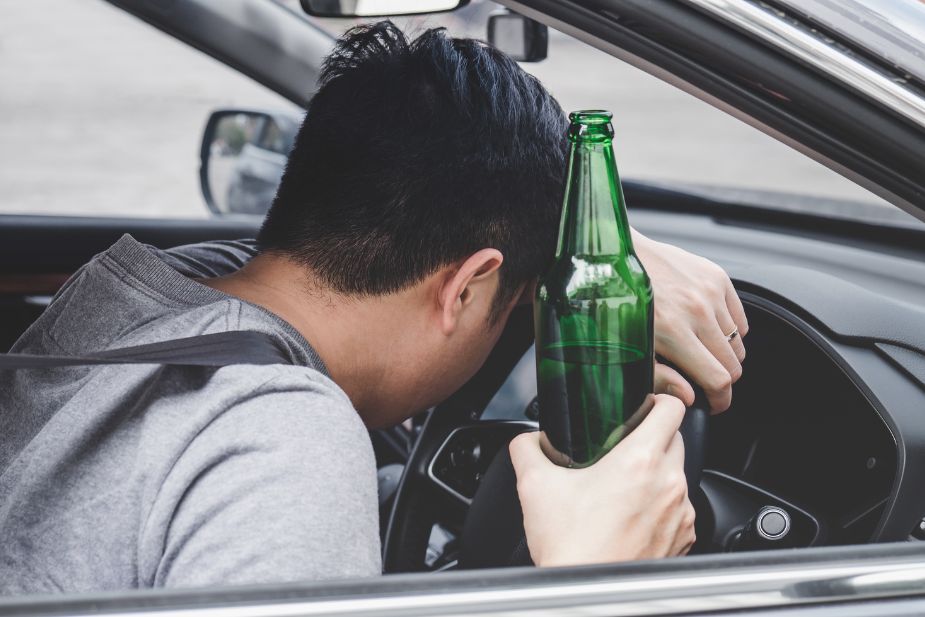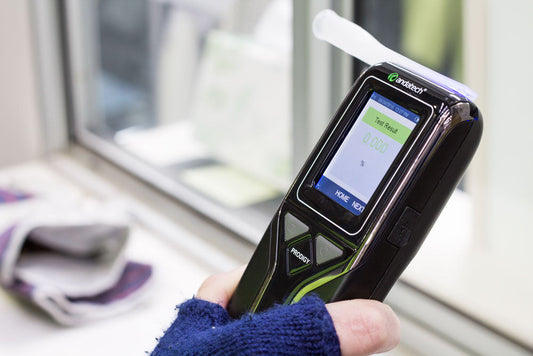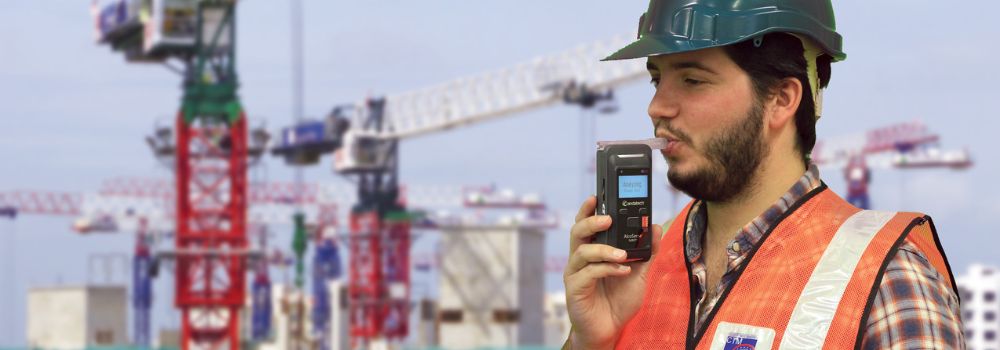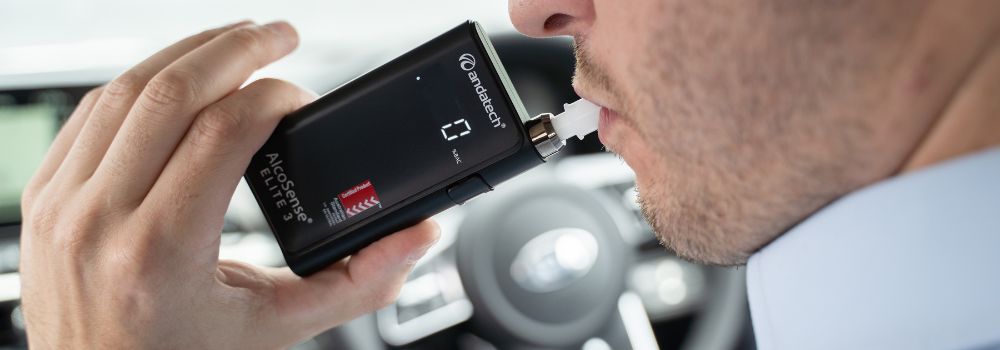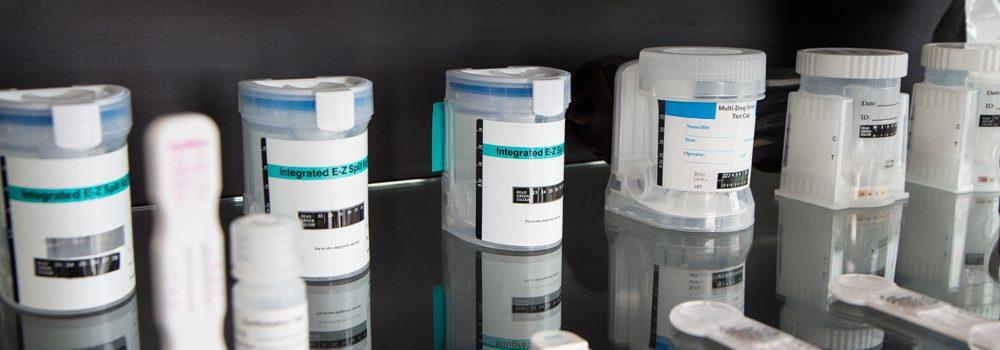Alcohol is a depressant drug and as such it actually slows down the activity of the central nervous system, including the brain. Therefore it’s not advised for anyone to drive after having alcohol, because alcohol could affect your driving by causing:
- impaired vision
- reduced reaction times
- reduced concentration and vigilance
- feeling more relaxed and drowsy, which may cause a driver to fall asleep at the wheel
- difficulty in understanding sensory information
- difficulty doing several tasks at once (e.g. keep in the lane and in the right direction, while concentrating on other traffic)
- failure to obey road rules
- over confidence, which may lead to risk taking.
Additionally, alcohol can still affect you the next day. The effects of a hangover after a night of drinking can make it hard for one to concentrate and drive safely, and can even cause you to fall asleep while driving.
And with alcohol affecting our views and experience of reality, you may be unaware of how much your driving skills have been affected. A person who has been drinking alcohol may think that if they are especially careful, they will be able to drive safely – but that is usually always distorted by the effects of alcohol.
What actual research says
Even a little bit of alcohol impairs your ability to drive.
As reported in the research by the US Department of National Highway Traffic Safety Administration (NHTSA) “Effects of Low Doses of Alcohol on Driving-Related Skills“, there is strong evidence that impairment of some driving-related skills can begin from any BAC level above zero.
Their report notes the following major impairments when alcohol in the body:
Divided attention – The ability to concentrate on two or more tasks at the same time and to make decisions about them. Some studies showed impairment can start at a BAC as low as 0.005, suggesting that dividing attention between seemingly simple tasks can start to be affected at very low levels.Vigilance – The level of alertness or watchfulness we are able to give to a task or an object in the driving environment. The studies showed that vigilance can be impaired at BACs of at least 0.03.
Tracking – Our ability to control and maintain position relative to changes in our driving environment. Tracking errors can be contributors to run-off-road single vehicle or head-on crashes. The study found impairment at BACs as low as 0.0018 and consistently at 0.005 BAC.
Perception – Our ability to process and make sense of information presented to us whether that is through our vision, what we hear or what we feel. Research findings indicated perception impairment at BAC levels as low as 0.04.
Vision – Visual functions include visual acuity (the ability to see fine detail in objects), contrast sensitivity, eye movements, and motor control of the eye. For some visual functions impairment started to become evident at BACs of about 0.03.
Psychomotor skills – Ability to maintain balance and to perform and co-ordinate physical tasks. The study found that balance can begin to become impaired at a BAC of 0.04. Complex tasks requiring co-ordination can be affected at 0.05.
Reaction time – Reaction time refers to the time between the occurrence of an event or appearance of an object and a person’s reaction to it if one is required. The study indicated impairment of reaction time by alcohol at as low as 0.02 and consistently at a BAC of 0.06.
Drowsiness – At BAC’s of at least 0.01, the time taken to fall asleep is significantly less than if you didn’t consume alcohol. So the drowsier you are the more you are at risk of having a fatigue related crash even if you are within the legal limit.
Read the full research summary from the TAC article: Drink Driving - What will it cost you?
Tips for driving safely
If you intend to drive, the safest option is not to drink.
Even a little bit of alcohol can affect your ability to drive.
Keep track of how much you drinkWhen you’re drinking, keep track of how much you drink by monitoring the number of standard drinks you consume each hour.
Everyone processes alcohol differently and it is possible for you to reach a high blood alcohol concentration (BAC) in just a few hours. Find out more about BAC.
Don’t guess your BAC, KNOW itThere is no sure way of knowing your BAC other than with a test, and the most reliable way to know your BAC is with a breathalyzer.
Limit your drinkingStart with a non-alcoholic drink, and have a non-alcoholic drink as a “spacer” every second or third drink.
Avoid topping up your glass, and drink low-alcohol drinks while avoiding mixed drinks like cocktails, as it is difficult to tell how much alcohol they contain.
Avoid drinking in shouts or rounds, so you don’t feel pressured to keep up with your friends.
Sip drinks, and avoid salty snacks or other food that may increase your thirst.
Wait for your BAC to drop before drivingIt is important to remember that BAC can continue to rise up up to 3 hours after the last drink was consumed.
The only way to remove alcohol from your system is to allow the body time to process it. Showers, coffee or fresh air will not reduce BAC.
On average, the liver breaks down a little less than one standard drink per hour. Before driving, you should wait at least an hour for each standard drink you’ve had.
And always test yourself with a breathalyzer to be sure of your BAC.
Have a back-up planIf you have too much to drink, be prepared to make other arrangements so you don’t have to drive to get home. The easiest way to know if you're too drunk to drive is to purchase a personal breathalyzer- knowing your rough BAC levels should be sufficient enough for you to gauge whether or not you're able to drive.
Disclaimer: The information provided in this article is for general reference only. Please seek advice from professionals according to your business’s needs.
Written by Eugene Ng

